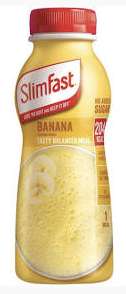
A typical cup of oolong has ~50% the caffeine of a cup of black tea. Here's one way to think about it: a typical cup of black tea has ~50% the caffeine of a cup of coffee. There's usually more caffeine in coffee than tea (there are a few exceptions out there with low-caffeine coffee beans and high-caffeine black and oolong teas).

So while the caffeine makes you alert and energized, the L-Theanine keeps away the jitters and anxiety, which helps you focus your energy boost into something productive.Ĭaffeine + L-Theanine = A Match Made In Heaven Coffee Caffeine vs Tea L-Theanine is known to reduce anxiety, calm the senses, and create good vibes. But even that's not always true-as you can see in the fairly big ranges of caffeine levels.īut tea doesn't only have caffeine (an upper). On a general level, the darker (more oxidized) the tea leaf, the more caffeine it has. Here's a breakdown of the many kinds of tea and their natural caffeine levels: Like coffee, tea is grown all around the world, with thousands of genetic varieties, and processed several ways-and this leads to varying amounts of caffeine naturally. And if you go up to 16 ounces of black coffee, the difference is even higher.Ĭaffeine In Tea: Not As Simple As Many Think So if you drink 12 ounces, you end up with 100-180mg… which is potentially 2-3x as much caffeine as a double shot of espresso in a latte or cappuccino. When you consider serving size, it's actually pretty close, with black coffee coming in slightly higher (on average).īut there's more to the story: most people drink more than 8-ounces of black coffee. That's for an 8-ounce cup, so 8-15mg of caffeine per ounce. That's for ~2 ounces of liquid, so 30-50mg of caffeine per ounce.Ī mug of black coffee typically has between 65mg and 120mg. Most people assume that espresso drinks are way stronger than regular black coffee… but that assumption is wrong.Ī regular double shot of espresso has between 60mg and 100mg of caffeine. There's a lot of misinformation when it comes to caffeine in black coffee and espresso.

#Diet coke caffeine how to

And yes, regulation is important-because there are some negative health consequences if you get too much caffeine. This makes it hard to regulate caffeine intake. While a different brand, run by the PepsiCo, you should expect a 330ml can of Diet Pepsi to contain 36mg – with 38mg in normal Pepsi, and 42.6mg in Pepsi Max.Īll of these drinks are available in caffeine-free versions (except for normal Pepsi), if you like to knock ’em back but want to control how much caffeine you consume.You know caffeine is amazing-but it's not always clear how much caffeine different drinks have, like coffee caffeine vs tea vs soda. Interestingly, this is around the same as a fully-steeped cup of tea, or about half of black coffee.Ĭoca-Cola, meanwhile, comes in at a smaller 34mg of caffeine per can – but, of course, contains more calories and has a higher sugar content than its Diet counterpart. Diet Coke has more caffeine than a regular Coca-Cola (Picture: George Frey/Getty Images)Ī single can of Diet Coke contains 46mg of caffeine, confirms the Coca-Cola Company.


 0 kommentar(er)
0 kommentar(er)
